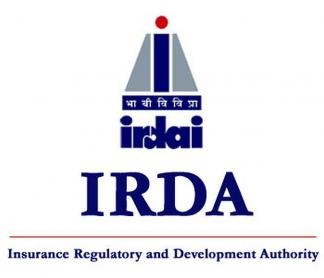The IRDAI, after consultation with the Advisory Committee, and with the previous approval of the Central Government has taken the decision that the percentage cession of the sum insured on each general insurance policy to be reinsured with the Indian Re-insurer (GIC Re), will be 4% (four percent) during FY 24-25,except the terrorism premium and premium ceded to Nuclear pool wherein it would be made ‘NIL’, said the IRDAI notification.
Mumbai:
In a boost to state owned GIC Re, insurance regulator IRDAI, for the second year, has retained its “Obligatory Cession’ at 4% for the FY 2024-25 .
Obligatory cession refers to the part of the business that general insurance companies have to mandatorily reinsure with GIC Re.
GIC Re, which had over Rs 34,000 crore of premium in Fy23, had around 40 per cent of its profitable revenue out of the the obligatory cession during the period.
To begin with, it was 20 per cent and reduced to to 4 per cent over a period of time.
The government has notified move, on Friday, saying that the entire Obligatory Cession is to be placed with General Insurance Corporation of India (GIC Re) only.
The obligatory cession was reduced from 5 per cent to 4 per cent in FY23.
The IRDAI, after consultation with the Advisory Committee, and with the previous approval of the Central Government has taken the decision that the percentage cession of the sum insured on each general insurance policy to be reinsured with the Indian Re-insurer (GIC Re), will be 4% (four percent) during the financial year beginning from 1st April, 2024 to 31st March, 2025, except the terrorism premium and premium ceded to Nuclear pool wherein it would be made ‘NIL’, said the notification.
There would be no limit on sum insured applicable for the cessions made during Fy2024-25.
The Indian re-insurer may require the ceding insurer to give immediate notice of underwriting information of any cession exceeding an amount as specified by the former, said the IRDAI.
The ceding insurer has to inform the Indian re-insurer at all times whenever the cession exceeds such specified limits.
Commission:
Percentage of commission on obligatory cession for different classes of business will be following:
Minimum 5% for Motor TP and Oil & Energy insurance. Minimum 10% for Group Health insurance, Minimum 7.50% for Crop Insurance. average terms for Aviation insurance, Minimum 15% for all other classes of insurance business.
Commission over and above, can be as mutually agreed between Indian re-insurer(s) and the ceding insurer.
Profit Commission:
GIC Re will share the profit commission, on 50%:50% basis, with the ceding insurer based on the performance and surplus of the total obligatory portfolio of the ceding insurer, after factoring incurred loss per centage (to be worked at the end of three financial years). management expenses at 2%. profit at 5%. commission at 15%, loss ratio at 50% to 78%.
No profit commission is payable if the loss ratio exceeds 78%. Profit commission should not exceed 14%.
The size of the Indian general insurance market is over Rs 2.50 trillion in 2022-23. It has been growing at over 15 per cent in recent years except for the last two years when it has faced many challenges due to CovId-19 Pandemic and has grown within 10 per cent single digit.
The approximate size of the Indian reinsurance market is around Rs 70,000 cror in FY.2022-23.
However, the move has disappointed the general insurers and foreign reinsurers having branches in India(FRBs), which have been demanding further reduction in the Obligatory Cession or completely doing away with it.
There are currently 11 global reinsurers which have set up branch operations in India for the last five years years.
According to the general insurers, they can always reinsure 4 % of obligatory, which is now going to GIC Re, with other reinsurers with better commissions as insurers earn reinsurance commission while placing a reinsurance deals with any reinsurers.
The foreign reinsurers, which are having branches in India, are also demanding a level playing field with GIC Re even as the government now wants more foreign reinsurers in the country to develop a reinsurance hub.

